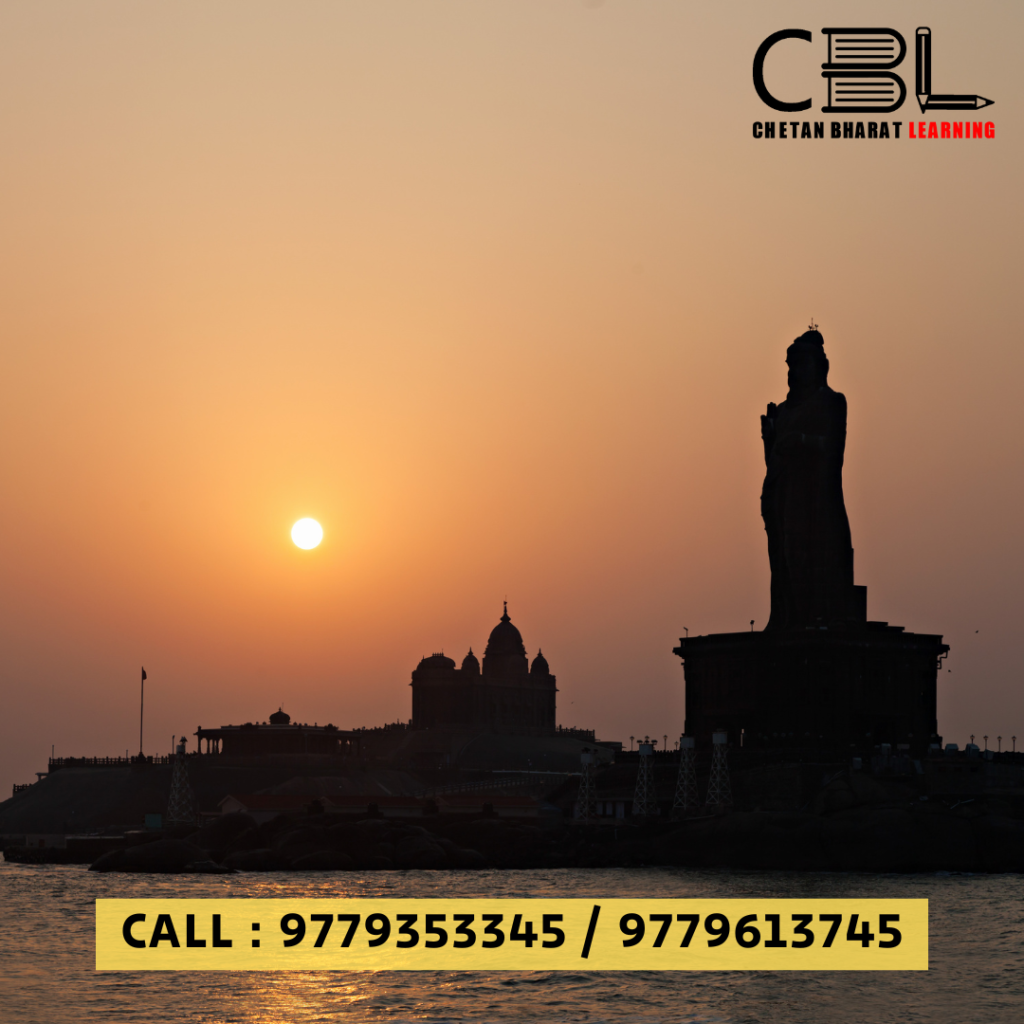
Swami Vivekananda :The Monk Who Ignited Hinduism on the World Stage
Swami Vivekananda’s contributions continue to inspire and guide individuals in their spiritual, social, and national pursuits, leaving a lasting impact on humanity.
Topics GS 1- Modern History, GS 4 Ethics, Essay
Headlines
PM Modi performs Dhyan & Yoga at Swami Vivekananda Rock Memorial in Kanniyakumari, Tamil Nadu.
About
Swami Vivekananda was born as Narendranath Datta in 1863. He was a Hindu monk, philosopher, and teacher who left an indelible mark on the world. Swami Vivekananda is a towering figure in Indian history and the global landscape of religion.
Born into a Bengali family, Narendranath Datta embraced a life of spirituality after encountering Ramakrishna, a revered mystic.
He swam to one of the rocks jutting out from Kanniyakumari, the southernmost tip of mainland India. There, he engaged in deep meditation for three days. This powerful experience, as the story goes, ignited within him a vision of a modern India.
Chicago Speech
Swami Vivekanand, following this profound meditation, on May 31, 1893 (131 years ago today), Narendranath Dutta set sail for Chicago. This marked a turning point in his life and the trajectory of Hinduism’s global perception.
The speech he would deliver at the World Parliament of Religions in Chicago would go down in history as one of the most iconic of all time. His powerful words, born from his vision on the Kanniyakumari rock, introduced the world to the rich tapestry of Hinduism and ignited a sense of national pride in the hearts of many Indians.
About Ramakrishna Mission
Swami Vivekananda in 1897 established the Ramakrishna Mission, an organization dedicated to uplifting humanity through spiritual and social service. The first branch was founded in Baranagar, and in 1899, the central math was established in Belur.
Ramakrishna Paramahamsa: A Beacon of Spirituality
Born Gadadhar Chattopadhyay, Ramakrishna Paramahamsa hailed from a humble Brahmin family. Revered as one of India’s greatest spiritual leaders, he was a devotee of Goddess Kali. His life, spent worshipping at the Dakshineswar temple, became a testament to his unwavering devotion.
Contribution
Thoughts of Swami Vivekananda and his contribution are as follows:
- The mission worked to help the low income, improve the conditions of women, and fight against untouchability and superstition and to overhaul the education system.
- He stressed the supremacy of the Hindu religion and culture.
- He emphasised that Hinduism was based on spiritual values.
- He believed in the unity and equality of all religions.
- He believed in the unity and equality of all religions.
- Economically, he was in favour of agrobased small-scale industries.
- Humanism was the soul of his religious, spiritual and social ideas.
- He gave social relevance to monasticism and spiritual relevance to the life of the normal householder.
- He was the first to ask the priests to make it their mission to alleviate the sufferings of human beings.
- He believed that Indian Nationalism can be based on four pillars viz. Consciousness and pride in the ancient glory of India; Awakening of the country men; Development of moral and physical strength and Unity based on common spiritual ideas
- He wanted that the Indian youth should rise, awake and work to eradicate hunger and ignorance among the masses.
Vedanta philosophy
It is based on Jnana Yoga, a Hindu philosophy rooted in the Upanishads. Its core principle is the pursuit of Brahman (ultimate reality) through the path of Jnana (knowledge) – contrasting with some other Hindu paths that emphasize rituals (Karma). Jnana Yoga considers the Vedas the ultimate source of knowledge and aims for Moksha (liberation) from the cycle of rebirth.
Conclusion
In the course of a short life of thirty-nine years (1863-1902), of which only ten were devoted to public activities-and those, too, in the midst of acute physical suffering-he left for posterity his four classics: Jnana-Yoga, Bhakti-Yoga, Karma-Yoga, and Raja-Yoga, all of which are outstanding treatises on Hindu philosophy. Swami Vivekananda spoke of himself as a “condensed India.”

Leave a Reply
You must be logged in to post a comment.